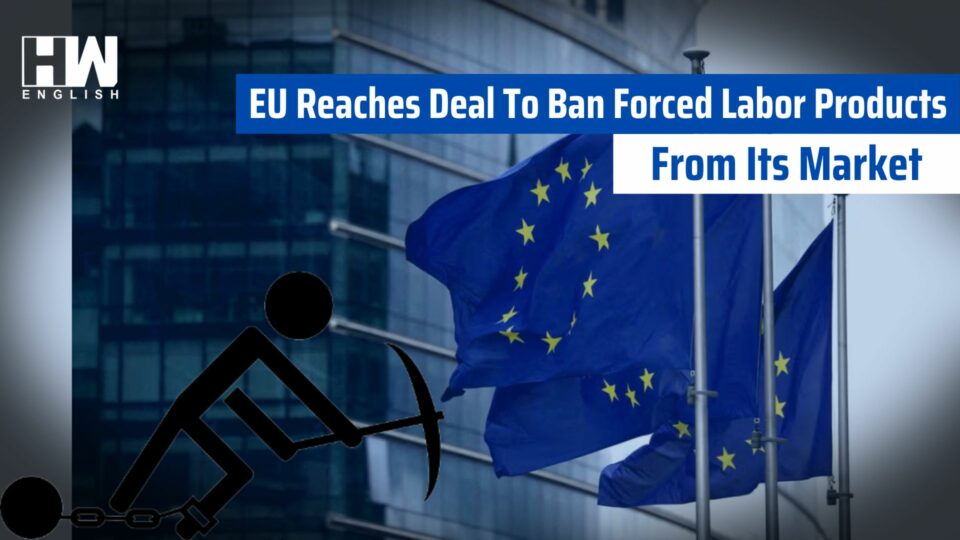On Tuesday, the European Union (EU) took a significant step towards cracking down on exploitative labour practices globally, with the EU Council and European Parliament reaching a provisional agreement to ban products made with forced labour from entering the European single market.
Also Read: Karnataka CM Siddaramaiah And Cabinet Colleagues Receive Bomb Threats Via Email
The deal clarifies the EU Commission’s and member states’ responsibilities in identifying companies that use forced labour and banning their products from the 27-nation bloc. It aims to disrupt the business model of these unscrupulous firms, according to Belgian Economy and Labor Minister Pierre-Yves Dermagne.
“With this regulation, we want to make sure that there is no place for their products on our single market, whether they are manufactured in Europe or abroad,” Dermagne said. Belgium currently holds the rotating EU presidency.
The prohibitions would apply to goods made outside the EU by forced labour and products manufactured in Europe containing components produced abroad through forced labour practices. National authorities and the EU Commission will investigate suspected forced labour usage in supply chains.
If forced labour is confirmed after an investigation, the authorities can demand the withdrawal and confiscation of those goods from the EU market and borders. The products would then need to be donated, recycled or destroyed unless they are deemed strategically necessary; in this case, they could be withheld until the company eliminates forced labour.
Non-compliant companies face potential fines but can have their products returned if they remove forced labour from their operations and supply chains.
At the European Parliament’s insistence, the Commission will identify high-risk sectors and geographical areas where state-imposed forced labour persists, helping prioritize investigations. New digital tools like a Forced Labor Single Portal will aid enforcement and cooperation.
The provisional agreement still requires formal approval from Parliament and Council before taking effect. EU countries would then have three years to implement the new rules.
Human rights groups hailed the deal as groundbreaking in the global fight against forced labour, which impacted an estimated 27.6 million people in 2021, according to the International Labor Organization. Combined with a separate corporate due diligence law, the EU aims to leverage its market power to promote ethical supply chains.
As an independent media platform, we do not take advertisements from governments and corporate houses. It is you, our readers, who have supported us on our journey to do honest and unbiased journalism. Please contribute, so that we can continue to do the same in future.

